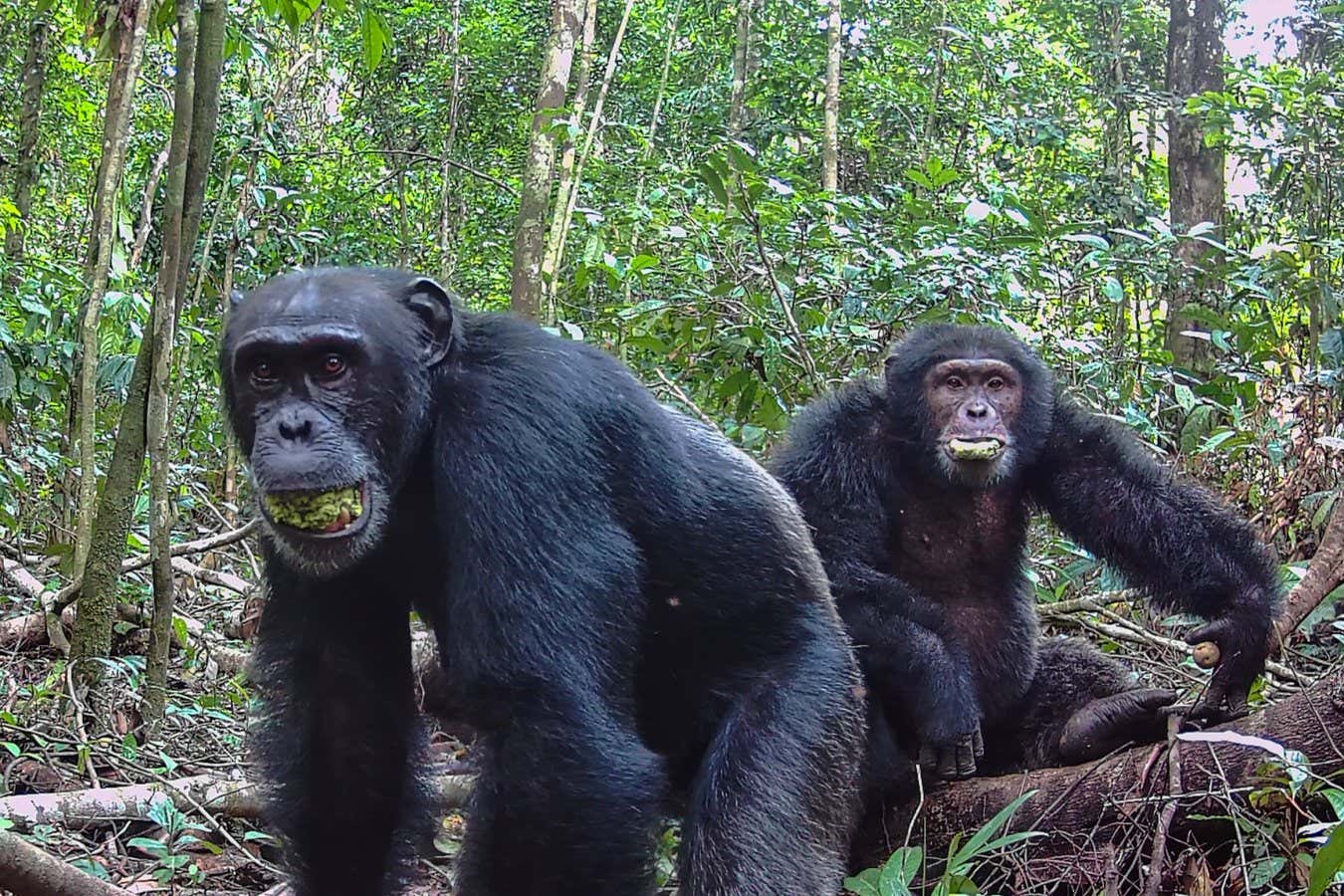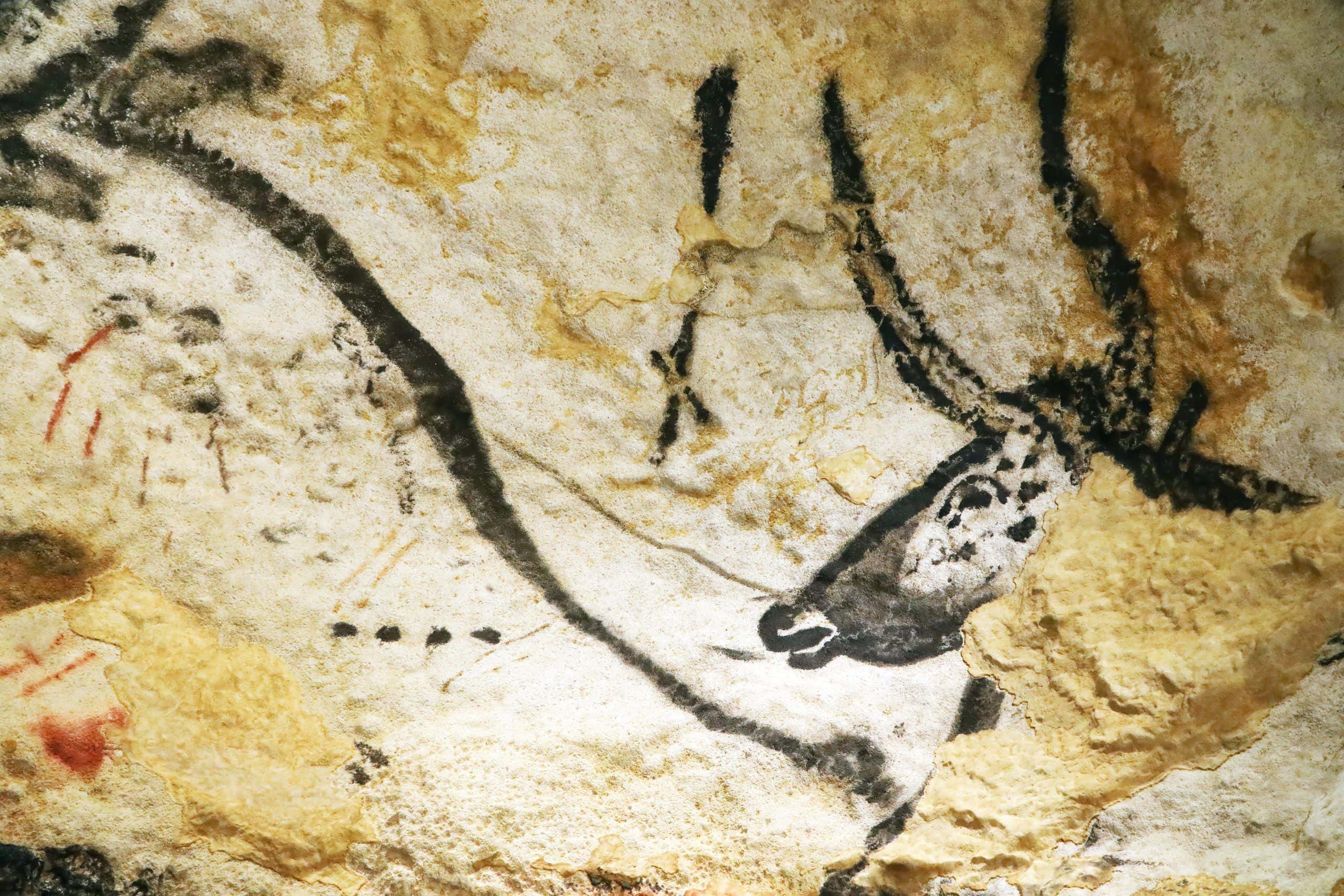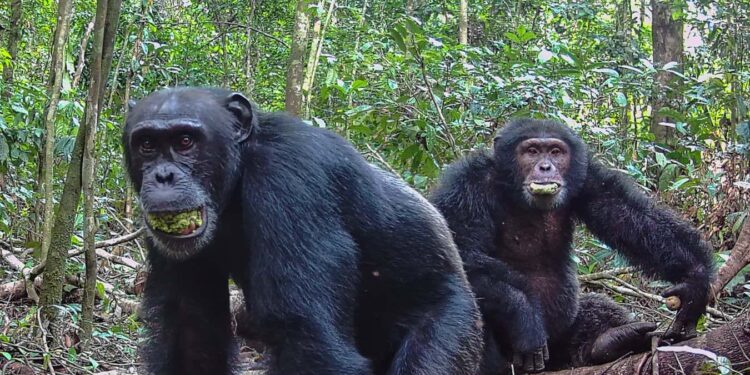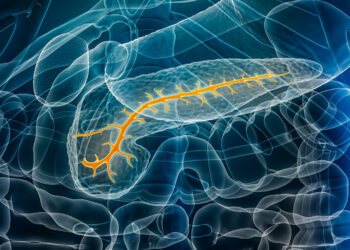
Two male chimpanzees eating the plum-like fruit of the evergreen Parinari excelsa tree at Taï National Park in Ivory Coast
Aleksey Maro/UC Berkeley
Wild chimpanzees scoffing fermented fruit consume the equivalent of two glasses of wine per day, factoring in their body size compared with us.
It has long been known that many primates, including chimpanzees, may consume significant amounts of alcohol through their diet, which includes ripe fruit and other vegetation. Some have suggested that this may explain humans’ enjoyment of alcoholic drinks – an idea known as the drunken monkey hypothesis.
Aleksey Maro at the University of California, Berkeley, and his colleagues attempted to quantify how much ethanol chimps actually consume by collecting fruits from two locations where wild populations live and measuring the alcohol content.
The team studied the diets of two wild but habituated populations – eastern chimpanzees (Pan troglodytes schweinfurthii) at Ngogo, Uganda, and western chimpanzees (Pan troglodytes verus) at the Taï Chimpanzee Project in Ivory Coast.
First, they confirmed what fruits the chimps were eating with camera traps and then only collected those they knew the chimps had targeted. For fruits growing in the canopy, they only collected pieces that they saw fall or could tell had recently fallen.
The eastern chimpanzees favoured the ripe fruit of the fig tree Ficus mucuso, while the western chimps most frequently sought out the Guinea plum (Parinari excelsa) and fruits from the bitterbark tree (Sacoglottis gabonensis).
The team found an overall concentration of around 0.3 to 0.4 per cent alcohol within the fruits. Chimpanzees in the wild consume around 10 per cent of their body mass per day in fruit pulp, says Maro, so seemingly low concentrations add up. The team calculated that chimpanzees consume about 14 grams of pure ethanol per day of foraging, at both sites.
A 125 millilitre glass of wine with a strength of 12.5 per cent would contain around 12 grams. “We can also account for the fact that chimpanzees weigh 40 kilograms on average, compared to humans at 70 kg,” says Maro. “With this correction, we could say the chimpanzees are consuming the equivalent of, to us, two glasses of wine per day.”
Although the chimp and human evolutionary lines diverged millions of years ago, our exposure to fermented fruit would probably have been similar, says Maro.
“Our findings imply that our ancestors were similarly chronically exposed to dietary alcohol,” he says. “The drunken monkey hypothesis suggests that this exposure caused our species to evolve an association between alcohol consumption and the reward of finding fruit sugars, and explains human attraction to alcohol today.”
To measure how much alcohol chimps actually have in their systems, Maro has collected urine samples from beneath chimpanzees, while protecting himself with an umbrella. He is currently analysing this data.
Miguel Llorente at the University of Girona in Spain, who wasn’t involved in the study, says the research provides the first quantitative estimates of daily ethanol ingestion in wild chimpanzees. “It adds weight to the idea that alcohol exposure has deep evolutionary roots in primate diets and may have influenced human evolution,” he says.
But he also cautions that the study has limits in terms of drawing parallels to us. “Unlike in humans, ethanol ingestion in apes is incidental, not voluntary, which makes the leap from natural exposure to the challenges of addiction in our species a big one,” he says.

Neanderthals, ancient humans and cave art: France
Embark on a captivating journey through time as you explore key Neanderthal and Upper Palaeolithic sites of southern France, from Bordeaux to Montpellier, with New Scientist’s Kate Douglas.
Topics:
Source link : https://www.newscientist.com/article/2496701-wild-chimpanzees-may-get-mildly-intoxicated-from-alcoholic-fruit/?utm_campaign=RSS%7CNSNS&utm_source=NSNS&utm_medium=RSS&utm_content=home
Author :
Publish date : 2025-09-17 19:00:00
Copyright for syndicated content belongs to the linked Source.














